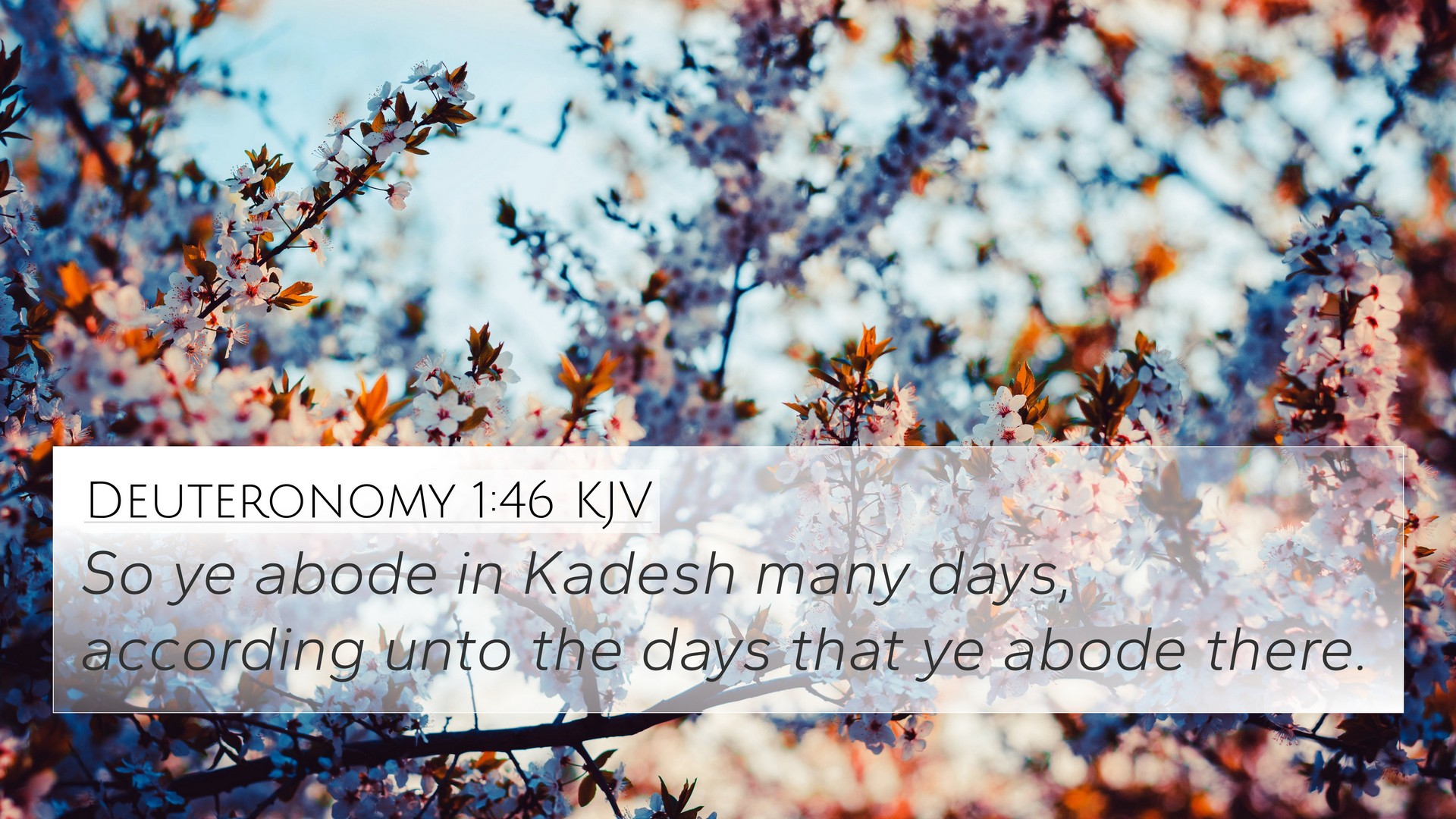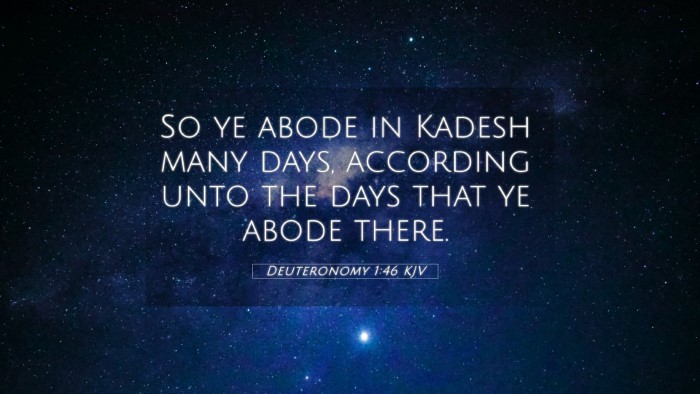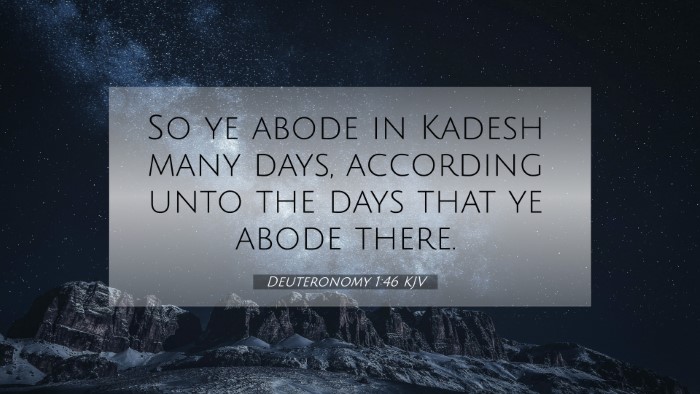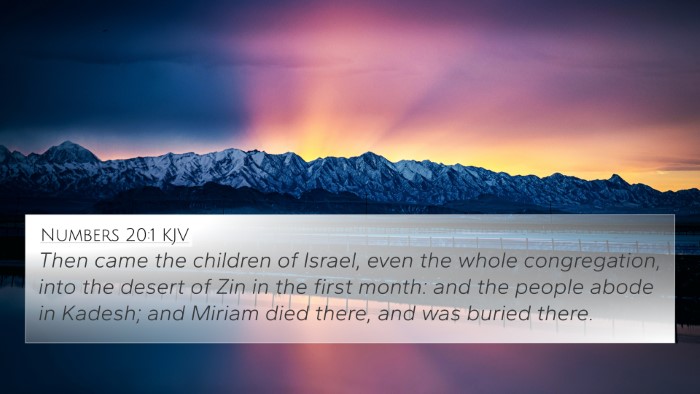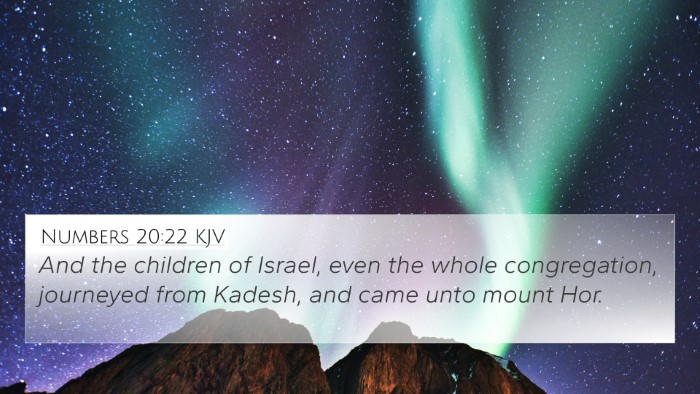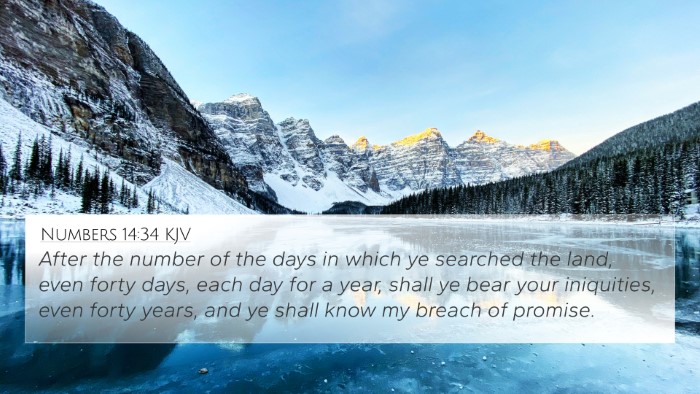Understanding Deuteronomy 1:46
Verse: "So you remained in Kadesh many days, according to the days that you spent there."
Summary of Meaning
Deuteronomy 1:46 recounts the period during which the Israelites remained in the region of Kadesh. This verse reflects on their hesitance to enter the Promised Land and serves as a reminder of their 40 years of wandering as a consequence of disobedience and lack of faith. The prolonged stay in Kadesh signifies a critical moment of reflection and consequence, emphasizing God's patience and the consequences of the Israelites' decisions.
Commentary Insights
-
Matthew Henry: Henry emphasizes the significance of time spent in Kadesh as a symbol of the people’s delay in fulfilling God's promise. He notes that this period should lead to reflection upon their faith and commitment, underscoring the limitations they faced due to their disobedience.
-
Albert Barnes: Barnes provides insight into the lessons learned during this extended stay. He suggests that the stunted progress encourages the need for faith and obedience to God's commands, highlighting the importance of trusting God in the face of challenges.
-
Adam Clarke: Clarke interprets Kadesh not merely as a location but as a pivotal moment in the Israelites' journey. He discusses the implications of their prolonged stay, stressing that it served God's purposes in molding the character of His people.
Bible Cross-References
This verse has several connections to other scriptures that enhance its understanding:
- Numbers 14:34: Highlights the consequence of the Israelites’ rebellion and the decree that they would wander for forty years.
- Deuteronomy 2:14: Refers to the specific time spent in the desert before entering the Promised Land.
- Exodus 32:10: Reflects on the disobedience of the people and God's anger towards them, relevant in understanding the context of their stay.
- Hebrews 3:19: Discusses the lack of faith of the Israelites as a reason for their failure to enter the Promised Land.
- Joshua 5:6: Reminds that those who came out of Egypt did not enter the Promised Land due to their disobedience.
- Psalm 95:10-11: References the generation that did not enter because of their unbelief.
- 1 Corinthians 10:5: Points to the lessons learned from Israel's history and their consequences for disobedience.
Thematic Connections
This verse ties into several themes throughout the Bible, including faithfulness, obedience, and the consequences of sin. Each of these themes resonates through both the Old and New Testaments:
- Faith and Doubt: The struggle between believing in God's promises and succumbing to fear.
- Divine Judgment: God's response to disobedience and the implications for His people.
- Hope and Restoration: Despite failure, there is an overarching theme of God’s desire to restore His people.
Tools for Bible Cross-Referencing
When studying verses like Deuteronomy 1:46, utilizing tools such as a Bible concordance and cross-reference guides can greatly enhance your understanding. These resources can help identify the connections between individual verses and larger biblical themes:
- Cross-reference Bible study: Organizing verses thematically to see the interconnections.
- How to use Bible cross-references: Techniques for identifying parallels between scriptures and exploring deeper meanings.
Conclusion
Deuteronomy 1:46 serves as a poignant reminder of the consequences of doubt and disobedience among God's people, highlighting a significant period of introspection that shaped their journey. Through the use of cross-referencing and thematic study, readers can uncover the complexities of this verse, linking it to various biblical texts that enrich the understanding of God's relationship with His people.
